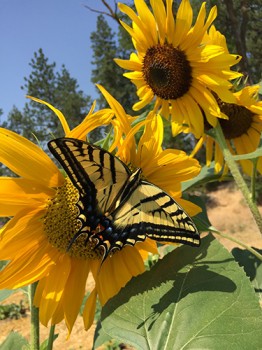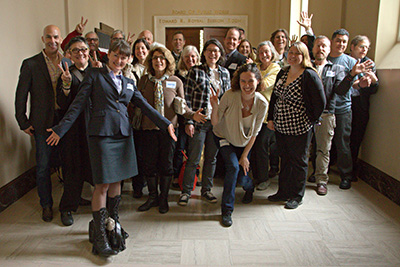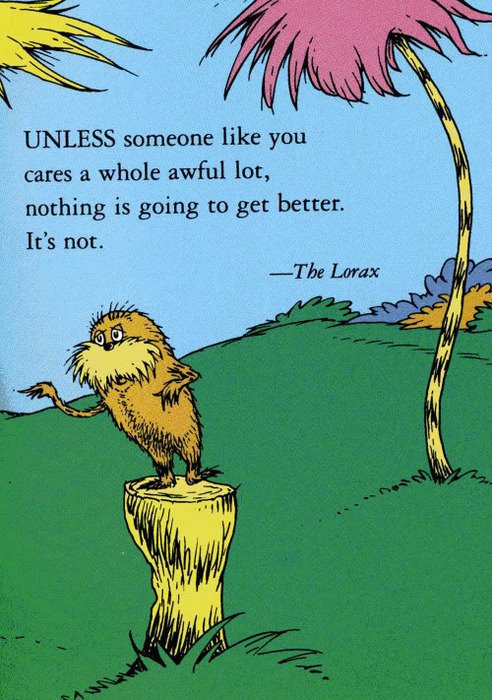Organization: HoneyLove
Email: info [at] honeylove.org
Web: http://honeylove.org
Contact: (424) 625-8233
PRESS RELEASE—For Immediate Release
Los Angeles urban beekeepers finally realize legalization at City Hall
LA City Council unanimously approves backyard beekeeping ordinance today.

After four years of public outreach, education and grassroots efforts[1] across every part of the city spearheaded by local non-profit HoneyLove.org, the Los Angeles City Council unanimously approved urban beekeeping today by a vote of 15 to 0. Los Angeles hobbyist beekeepers can finally join most every other major metropolitan city on the globe with fully legal hives in their backyards.
Most cities have already legalized urban beekeeping including Santa Monica, Redondo Beach, Culver City, San Diego, San Francisco, New York, Seattle, Portland, Denver, Chicago, Toronto, Vancouver, Paris, London; the list goes on. The legalization effort in Los Angeles, led by HoneyLove, began in November 2011. The group rallied its volunteer beekeeper-members to educate the public and collect thousands of petition signatures both in person and online. They visited over 20 neighborhood councils to garner motions in support of beekeeping and raised awareness through outreach at public events, with local groups and schools and by way of countless articles, radio and TV interviews, Youtube videos, hands-on workshops and monthly newsletters.
Report from City Attorney
“The proposed ordinance amends the LAMC to allow beekeeping in the RA, RE, RS and R1 zones. It adds definitions and standards to the sections of the LAMC that regulate the uses (including accessory uses, of which backyard beekeeping would be considered) in those zones. The standards are intended to prevent backyard beekeeping activity from becoming disruptive to occupants of neighboring properties while allowing backyard apiaries to thrive and improve the surrounding environment. For example, the proposed ordinance requires the placement of a solid barrier at least six feet in height between hives and an adjacent lot in order to direct the flight of bees to a higher level when departing their hives. Additionally, a water source must be maintained on the property where the hives are located in order to discourage bees from seeking water sources on neighboring properties.
The proposed ordinance also limits the number of hives allowed per 2,500 feet of lot area and prohibits the placement of hives in front yards. It restricts the placement of hives to at least five feet from front, side and rear lot lines and at least twenty feet from public rights-of-way or private streets and requires that hive entrances face away from or be parallel to the nearest lot line adjacent to another lot. Finally, any person interested in backyard beekeeping must be registered as a beekeeper with the County of Los Angeles Agricultural Commission before engaging in beekeeping activities on his or her property.”[2]
“When HoneyLove came to me two years ago, I was proud to lead the effort to legalize beekeeping,” said Councilmember Huizar. “We are working to become a more sustainable City to confront the environmental crises of today, and bees, and beekeepers, are a part of the solution. It’s time to support beekeeping in the City of Los Angeles’ residential neighborhoods, which will help our bee population and make the City safer and greener.”
“This arose from the neighborhood council system,” said Councilmember Koretz, who took up support of the motion when Bill Rosendahl termed out. “It started in Mar Vista, was vetted through the NCs—over twenty neighborhood councils from throughout the city have sent in their support. Bees are dying worldwide—in LA we’re putting out the welcome mat. They are vital to our survival.”
“Very excited for Mar Vista residents to learn that what started as a sustainable initiative for their small residential community has grown into a citywide effort to help save the honey bees across this great city…one healthy hive at a time!” adds Maritza Przekop, City Planning Associate at City of Los Angeles and early proponent of the ordinance in Mar Vista. maritza_porti01@hotmail.com
“There are so many environmental reasons to support urban beekeeping but there is also a really critical safety element. When beekeeping is legal, then feral hives can be properly managed which makes our city safer” says Meghan Sahli-Wells, Current Councilmember and former Mayor of Culver City. meghan@logicalnot.com
Their advocacy for the honeybee is echoed by HoneyLove co-founder and author of the new book “Save the Bees,”[3] Rob McFarland. “Bees are an essential part of our food system. According to the USDA, bees are responsible for the production of about a third of our diet. In addition, bees are a boon to local gardeners and urban farmers. As you may be aware, honeybees worldwide are in crisis, falling prey to the mysterious Colony Collapse Disorder at an alarming rate, making beekeeping a serious food security issue.” rob@honeylove.org
HoneyLove member, beekeeper and film producer Max Wong, who helped shepherd legalization in Santa Monica, states that “Honeybees are such effective pollinators that they are able to increase agricultural yield by 30 to 60 percent. This increase in productivity in an urban garden can mean the difference between a family needing food assistance and a family that can pull itself out of poverty, and even participate in a local, green economy. Urban beekeeping is a powerful tool that we can use to help provide food security for our most vulnerable neighbors. Honeybees enable people of all economic levels to eat better and have the empowering and deeply satisfying experience of successfully growing their own food.” maxwong@gmail.com
“It’s great to see Los Angeles catching up with all the other great cities of the world in making beekeeping legal. The City Planning department did a great job in crafting a common sense set of regulations. Now that the City Council approved the changes to the code, we can get on with the work of saving bees and creating a city friendly to pollinators,” says Erik Knutzen, co-author of The Urban Homestead: Your Guide to Self-Sufficient Living in the Heart of the City (2008) and Making It: Radical Home Ec for a Post-Consumer World (2011), also a Los Angeles Resident and urban beekeeper. homegrownevolution@gmail.com
The most common concern about honey bees is bee stings. Honey bees are not aggressive by nature and are unlikely to sting. Only 0.4% of Americans report an allergy to insect stings in the U.S. and almost none of these are caused by honey bees [but by other stinging insects]. In addition, less than 1% of the US population is at risk of systemic reaction to stings by honey bees. Severe reactions from the sting of any one insect in a year are 1 in 5,555,556. The chance that someone will be hit by a car is 59.3% higher.[4]
“I am one of the minuscule percentage of people who is actually systemically allergic to honey bees and I am full support of legalizing urban beekeeping in Los Angeles. Beekeepers are our first line of defense in helping to make the city safer by managing the feral populations of bees that already live naturally in our environment” says Chelsea McFarland, HoneyLove co-founder. chelsea@honeylove.org
“I am a registered urban beekeeper with two boys—four and eight years old—who have never been stung by any honey bees from our managed hives in our backyard. Unlike the unmanaged feral hives already existing in Los Angeles[5], my hives are inspected, managed and carefully looked after. Having more educated beekeepers will, in fact, provide a safer environment for everyone,” states Paul Hekimian, Santa Monica Resident, beekeeper and HoneyLove Board Member. paul@honeylove.org
About HoneyLove
HoneyLove is a Los Angeles based 501(c)3 non-profit conservation organization with a mission to protect the honeybees by educating our communities and inspiring new urban beekeepers. Founded in 2011, HoneyLove believes that the city is the last refuge of the honeybee. Our home gardens are generally free of pesticides, and in cities like Los Angeles, there is year-round availability of pollen and nectar for the honeybees! Learn more about HoneyLove’s events and services at http://honeylove.org
[1] http://honeylove.org/press/
[2] http://clkrep.lacity.org/onlinedocs/2012/12-0785_rpt_ATTY_09-18-2015.pdf
[3] http://smile.amazon.com/Save-Bees-Natural-Backyard-Hives/dp/1624141412/
[4] http://justfood.org/sites/default/files/Just%20Food%20Beekeeping%20Campaign%20Fact%20Sheet.pdf
[5] 9-11 colonies of bees per square mile was a stat given by LA County Agricultural Commissioner during the Mar Vista Beekeeping Feasibility Study in 2011 – https://docs.google.com/file/d/0B3mjhYhHhzMrNGRiYjkzNjItMGExNi00Y2I1LWIyMWUtY2VhYTIwNzJkMTQ5/edit
Full PRESS RELEASE linked below:
https://www.dropbox.com/sh/66pf5cuo83pugso/AACzBj16yET2_53zUsWaYBR5a?dl=0

 follow
follow  watch
watch  subscribe
subscribe 













 Become a member of HoneyLove and learn to be an urban beekeeper!
Become a member of HoneyLove and learn to be an urban beekeeper!
 Plant an organic garden without the pesticides that harm honeybees!
Plant an organic garden without the pesticides that harm honeybees!
 Provide a water source on your property – bees love clean water to drink!
Provide a water source on your property – bees love clean water to drink!